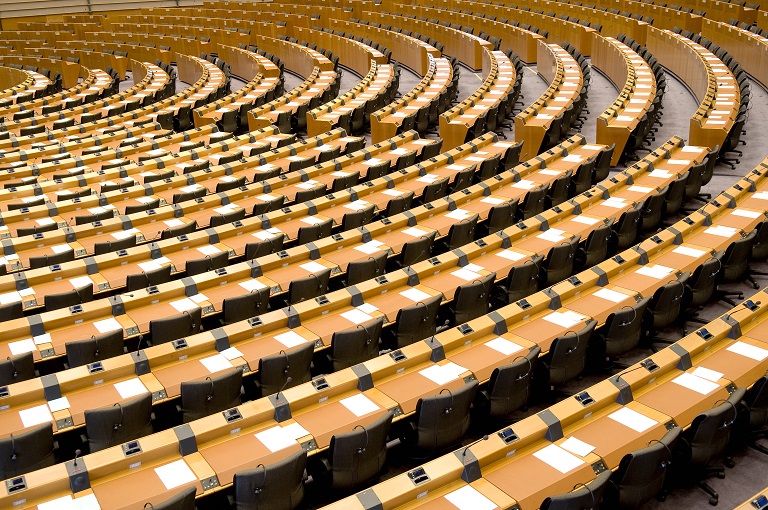Competition Outlook 2022
Published on 15th February 2022
Antitrust activity across Europe is set for another busy year.

The European Commission and antitrust agencies across Europe will be engaged in a broad range of activity in 2022, including increased regulation of digital competition, the provision of a new framework for online sales and distribution, moves to ensure that sustainability initiatives are compatible with EU antitrust law, and increased cartel enforcement across the Union.
Digital competition law and the rise of EU regulation
Antitrust agencies across Europe continue to scrutinize big tech. The Commission and the EU Member States have proposed legislation to tackle novel forms of anti-competitive conduct, particularly regarding data sharing, access to data and the role of platforms.
Germany is already using new powers conferred to its Federal Cartel Office (FCO) last year to regulate digital champions with paramount cross-market importance for competition. The FCO has already initiated a number of cases against the leading platforms.
The EU’s Digital Markets Act (DMA) and Digital Services Act (DSA) are expected for the first half of 2022, while prospectively not entering into force before 1 January 2023.
The DMA will regulate digital gatekeepers as providers of core platform services with market power, chiefly large providers of online intermediation services, search engines, social networking services or video-sharing platforms. The DMA introduces behavioral rules (do’s and dont's) for gatekeepers, including the prohibition of any preferential ranking of own services or providing fair and non-discriminatory access to an app-store for commercial users. The European Commission will enforce the rules for the gatekeepers and will be equipped with specific investigation and sanction powers (for example, to impose fines of up to 10% of the annual worldwide group turnover). Whether private enforcement may also be a potential risk for gatekeepers under the DMA, is yet uncertain.
The DSA regulates illegal content, disinformation and untransparent advertising and is, therefore, more consumer focused. It addresses providers of digital intermediary services with market power; for example, large social media platforms.
The Commission's competition chief, Margarethe Vestager, showed herself concerned about potential competition restraints rooted in the metaverse and web 3.0 – and she might press for specific regulation.
Post-Brexit, the UK is pushing ahead with its own new regime to regulate digital markets. In 2021, a new regulator – the Digital Markets Unit (DMU) – was established on a non-statutory footing and is set to enforce the new regulatory regime; legislation is expected to be tabled this year, although there is no "cross-government agreement" yet on when this will be presented. The UK's rules are expected to have similarities with those at EU level, and, in particular, the UK is set to apply rules to specific players by introducing a new code of conduct for players with "strategic market status" (SMS). However, the regimes are expected to differ in some respects; in particular, certain firms may have SMS status in the UK but not be designated a gatekeeper under the EU rules, and vice versa. The Competition and Markets Authority (CMA) has said it expects to regulate fewer companies than the EU. It will, therefore, be important for businesses active in both the UK and the EU to stay up to speed with both developing regimes.
Online sales and distribution
The EU will unveil its new framework for vertical restraints this spring. The future Vertical Block Exemption Regulation (VBER) will be adapted to the digital economy and provide more clarity for companies when dealing with suppliers and customer also in the context of multi-channel and platform distribution.
Both the current and the revised VBER provide a safe harbor for vertical agreements between undertakings on different levels of the supply chain (that is, a manufacturer and its reseller), which particularly comply with the following criteria:
- the undertakings concerned do not have an individual market share exceeding 30 %; and
- the agreement does not contain any hardcore restrictions (such as resale price maintenance, which European law continues to consider presumptively unlawful, as well as territorial and customer restrictions aimed at facilitating trade across the EU member states).
Yet, the revised VBER is about to bring several changes that will considerably affect many distribution systems:
While dual distribution (that is, undertakings selling both directly and via resellers) and platform distribution can in principle still benefit from an exemption under the VBER, the scope of the safe harbor has shrunk significantly and they will need to cope with a tightened regulatory framework for the exchange of information. Pursuant to the revised VBER, the exchange of information in a dual-distribution system shall only be able to benefit from an exemption if the undertakings to the agreement have an aggregated market share of less than 10 % at retail level. Otherwise, the exchange of information will have to be assessed under the (also) revised Horizontal Guidelines. In addition, certain types of information exchange will always fall short of an exemption under the new rules and will require a justification based on an individual exemption. The Commission has invited comments on this aspect of the new rules until 18 February 2022.
Likewise, the revised VBER will no longer provide a safe harbor for (agreements with) hybrid platforms, that is where a platform sells goods or services in competition with undertakings to which they provide online intermediation (such as platform) services which compete with their users. Agreements with hybrid platforms will be assessed on a case-by-case basis, which can lead to a high degree of uncertainty and, therefore, may have major effects on distribution strategies. This will affect all platforms, regardless of their size, as well as the platforms business partners.
In addition, the revised VBER and the associated revised Vertical Guidelines will bring further changes and clarifications:
- Dual pricing can be block exempted under the revised regulation, facilitating differentiated prices for online and brick-and-mortar retailers.
- The revised regulation clarifies that marketplace and platform bans can be block exempted (while blacklisting restrictions on online advertising).
- It provides more clarity on the use of retail parity obligations.
- The revised regulation revises and expands the admissibility of certain clauses within exclusive distribution systems (for example, the new concept of a “shared exclusivity”) and selective distribution systems.
The guidelines to the revised VBER will also include some further guidance on agency models and the conditions under which they are compatible with EU antitrust law.
The updates reflect the Commission’s concerns about increasing horizontal aspects in vertical agreements and may confront undertakings with considerable challenges to amend their distribution system within the relatively short one-year transitional period (until 31 May 2023). Manufacturers, platforms and retailers are well advised to review their European distribution systems.
While the UK has retained the VBER after Brexit and is set to similarly renew these rules with revisions, divergences are expected to arise between the rules for distribution in the UK and EU. While it is expected that the UK equivalent of the VBER will largely track the EU version, there are certain areas where the regimes look set to differ under the most recent proposals, including in relation to dual distribution, where the EU's more limited exemption proposals have not been adopted by the CMA, and in relation to "most favored nation" (MFN) clauses, where the CMA is taking a harder line than the EU on the legality of wide MFN clauses (those that restrict a seller offering better terms on any sales channel). Again, this is an area where business active in the EU and UK will need to ensure their activities – and in this case their distribution systems – comply with both sets of rules.
Sustainability and cooperation
The Commission and EU Member States stress the importance of climate change and environmental degradation to be “an existential threat to Europe and the world”. Many undertakings have taken the responsibility to change their behavior, reduce waste, or reduce emissions. In many cases, it is virtually inevitable for undertakings to cooperate with competitors to launch successful campaigns and initiatives.
However, any establishment of environmental standards, promotion of sustainability, or other joint initiatives must be compatible with EU antitrust law. The current EU antitrust regime as well as most national antitrust regimes provide a narrow framework for competitors.
While some EU Member States assess whether to accept environmental efficiency defenses or provide particular guidelines (such as in the Netherlands and Greece), Germany’s federal antitrust agency, the FCO, stresses that “competition law does not stand in the way” of sustainability initiatives and cooperation. The FCO rather emphasizes that effective competition “is part of the solution since sustainability requires innovation, which in turn only emerges in a competitive environment”. Similarly, the Austrian legislator introduced an exemption for sustainability initiatives.
Back at it: increased cartel enforcement
European antitrust enforcement is back in high gear. In addition to investigations in the digital sector, a wave of dawn raids recently hit the wood-pulp industry, the defense sector and cable manufacturers. With the end of the pandemic nearing, no industry or sector should have a false sense of safety. Companies should be prepared for investigations and dawn raids, update compliance policies and refresh trainings.





